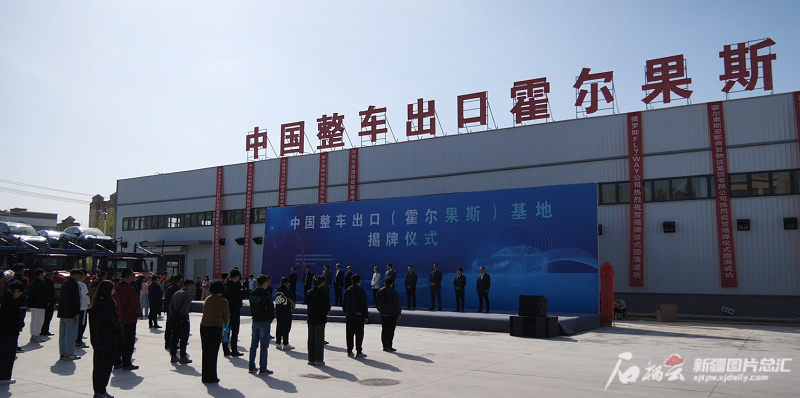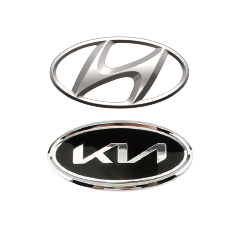"Cross-border e-commerce by sea people will often encounter these terms: customs clearance, cut-off, cut-off port, customs clearance, customs declaration, customs clearance, customs clearance, these terms seem to make people feel "face blind", how to distinguish between the actual operation?
Today I have collated some common terms in cross-border logistics and shipping, let's understand it together!
Cut-off order
Cut-off refers to the shipping company cut-off point for submission or modification of the bill of lading samples, including AMS, ENS, VGM and so on, more than this time there is a late cut-off fee or change the single fee. Each shipping company is likely to be different for each route. There are also many shipping lines that have a one-time replenishment and any subsequent changes are subject to charges.
The logistics provider must provide the shipping company with information on the entire container load before the cut-off time. Note: The cut-off time here does not refer to the logistics company's cut-off time, but to the shipping line's cut-off time.
Port Cut-off
The port cut-off is the time when the terminal cuts off the collection of containers. Before this time, loaded containers are allowed to enter the terminal, while after that the cargo is no longer allowed to enter the terminal. All containers are managed by the container terminal yard. Sometimes it is also called cut-off container, which is shown as CY cutoff or CY closing.
Before loading the container, the logistics provider needs to book the cabin to the transport company, after the transport company puts the warehouse space, there will be a bill of lading to the logistics provider, the logistics provider goes into the container yard of the terminal to pick up the empty containers with the bill of lading, and then goes to the loading point to load the containers, and then returns the containers to the terminal yard after the completion of the process, and then declares the customs and releases the containers for the shipment.
Customs clearance
Customs cut-off is the time to cut off the acceptance of customs clearance information, which is also commonly known as the cut-off time of the release note. Cargoes must be cleared before this time by submitting a customs release note (yard receipt, also known as an off-loading paper) to the shipping company. If the Customs release note is submitted after this time, the shipping company will regard the cargo as failed to be cleared and released, and will not be allowed to board the ship.
Note: Each shipping company has different cut-off time, some shipping companies cut off the customs 7 hours before the ship docking, and some are cut off 2 days before the ETD. It is easy for the general forwarder to encounter more than the cut-off time before release, it is recommended to call in advance to ask, to avoid the drop box.
Customs declaration
Customs declaration is a specific behaviour, usually exporters or agents to the customs declaration of specific export goods information. The corresponding agent is a customs broker. The declaration process must be completed before the customs clearance, and the goods will be released by the customs before they can be transported on board the ship.
Note: The term of customs declaration means the time limit set by law for the consignee or his agent to declare the goods to the customs after their arrival at the port. At the same time, before the customs declaration, not only need to prepare all the declaration information, but also pay attention to the customs policy and requirements of the destination country.
Customs clearance
Customs clearance is a procedure after the release of customs, the release of goods and cargo has been loaded on board the information sent to the Customs and Excise Department, for the record and archives and subsequent export tax rebates (foreign exchange cancellation) and other work. Therefore, the date of customs clearance refers to the international ship in the export of customs formalities before the completion of all kinds of money payable, the Customs allowed to leave the port of the date of sailing.
Note: In general, the customs clearance is about one week after the export of goods. However, there may be some special reasons to extend the customs clearance time, the specific circumstances of the specific discussion.
Customs clearance
Customs clearance that is, customs clearance, customs clearance of a series of actions collectively, refers to the import and export of goods and transshipment of goods, into and out of a country's customs border or the national border must be handled by the Customs regulations, only after the customs declaration, inspection, taxation, release and other formalities, the goods can be released, processing trade mode of late write-offs are completed, the completion of this series of actions is called customs clearance.
Analysis of differences
Customs clearance and customs clearance are different:
Customs clearance is to say that the import and export of goods customs procedures have all been completed, the customs clearance, no longer on the goods under supervision. The usual cut-off date refers to the latest time for customs clearance.
What is the difference between the release of documents and the release of customs clearance?
Documentary release refers to the release of customs declaration, has been released refers to the release of goods, has been cleared means that the Customs and Excise Department has been for the bill of goods for customs clearance hand procedures. Customs clearance in the release after the customs clearance, customs will send electronic data to the electronic port of entry, if only in the released single, that is not yet customs clearance, general goods exported within 5 working days after the customs will be for the goods for customs clearance procedures.
What is the sequence of customs declaration/cut-off/clearance/clearance for export?
When exporting, you will prepare the information before the cut-off date and declare the goods first, after the cut-off date, the goods will be released and loaded on the ship to leave the port, and the ship will leave the port with the goods after completing the customs clearance procedures. Therefore, the date of customs clearance is generally later than the date of customs clearance, and even later than the date of customs declaration. And some of these series of action is completed in order to count the complete customs clearance. Therefore, the time sequence is customs declaration < customs cut-off < customs clearance < customs clearance.
Popularised these terms, I hope to help cross-border e-commerce export partners to understand these operational nodes, more clearly know their goods in the export chain of the flow of the situation, but also to improve their professionalism.





